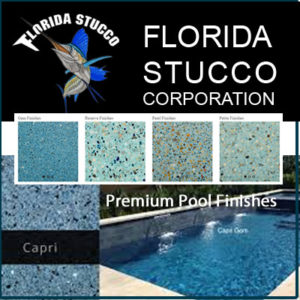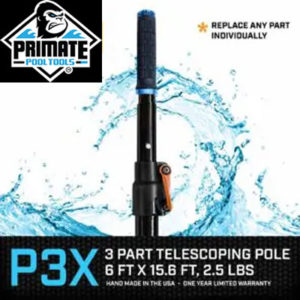Animals in Florida Public Swimming Pools

Which animals are allowed in Florida public swimming pool areas?

When you visit a public pool in Florida you may see any type of dog within the fenced in pool area. It does not mean this dog should be there. People love bringing their dogs with them to the public condo pool to either hang out with them or go swimming with them.
The only animals allowed within Florida Dept. of Health rule in the fenced in pool area is a service dog. Service dog as defined by U.S. Department of Justice and the American with Disabilities Act(ADA) is a dog that has been individually trained to do work or perform tasks for a person with a disability. The tasks that are performed by the dog shall be directly related to the person’s disability.

What are some examples of “work or perform tasks”?
The dog shall be trained to take action when needed to help the person with a disability.
Examples:
A person with diabetes that has a dog that is trained to alert the person when their blood sugar reaches levels too high or low.
A person with epilepsy may have a dog that is trained to detect an oncoming seizure and also helps that person from falling or getting hurt from the seizure.
It could even include a person with depression that has a dog that is trained to remind them to take their medications.
Occaionally, people want to claim an emotional support animal as a service animal in order to have them on the pool deck or fenced in pool area. The ADA does show distinction between a psychiatiric service animal versus an emotional support animal. The dog that is trained to sense an anxiety attack will occur and can take a action to help the person avoid the anxiety or help with dealing with it is considered a service animal.
If a dog is only present to provide comfort to the person but does not have a specific action to help with their disability then it is an emotional service animal and is not considered a service animal.
If the dog is an emotional support dog and any other designation this does not meet the definition of a service dog and that animal should not be present on the pool deck or within the fenced in pool area.
Service animals are allowed within the fenced in pool area and pool deck but the animal is not allowed in the pool water. The service animal is allowed only up to the pool edge to assist the person in and out of the pool.
Service animals are not required to wear a vest, identification tag or any specific harness. The service animal is not required to have a certificate showing it is a service animal.
What Questions can be asked by the Aquatic facility?

“Does your dog provide a service?”
“What is your dog trained to do?”
How do animals affect pool water quality?
An average sized dog is equal to 50 swimmers in the pool. Thus, dogs add a large bio-load to the pool water. What is bio-load? In simple terms, it is all the waste that is added or contained in the pool water. A dog will bring fecal matter into the pool water, along with insects, body oils, dirt. Animals often have small particles of fecal matter stuck in their fur. That fecal matter will contaminate the pool water, This aids in the transmission of Recreational Water Illnesses (RWI’s), like as E. coli, Giardia, Hepatitis A, and Cryptosporidium. In turn, with the increased bioload added to the pool water by the dog, you will use more sanitizer than normal. This is due to the free chlorine now binding with the added contaminants and fur. This bioload will affect the pH and consume your free chlorine very quickly.
Dog hair is harder on a filter system. It contributes to your filter having more contaminants that could reduce your filtration rate through the filter. Your lint/strainer basket located in your pool pump will end up doing most of the heavy work. The pool operator may have to do some extra skimming the following day once the hair settles. If there is a cartridge filter on your pool the extra dog hair may mean that the pool operator will have to clean the filter element more often. A sand filter may need to be backwashed more frequently as well.

A certified pool operator can maintain pool water safe for human swimmers by maintaining proper chlorine disinfection and proper flow rate through the filter system. It is important that the pool equipment system is operated long enough to thoroughly filter the water and chemically treat it. This is attained by making sure that the pool turnover rate is attained on the pool. An operator could use a skimmer sock to catch dog hair to remove it from the pool water before it gets to the filter system. The use of the skimmer sock could help in reducing clogs and cleaning time of the filter system.

Florida Specific Regulations

Public swimming pool regulations in Florida do not allow animals in the fenced in or within 50 feet of unfenced pool. This rule is even required on the pool rules sign that has to be posted on the pool deck area. Only service animals are allowed within these areas but service dogs are not allowed in the pool water.





